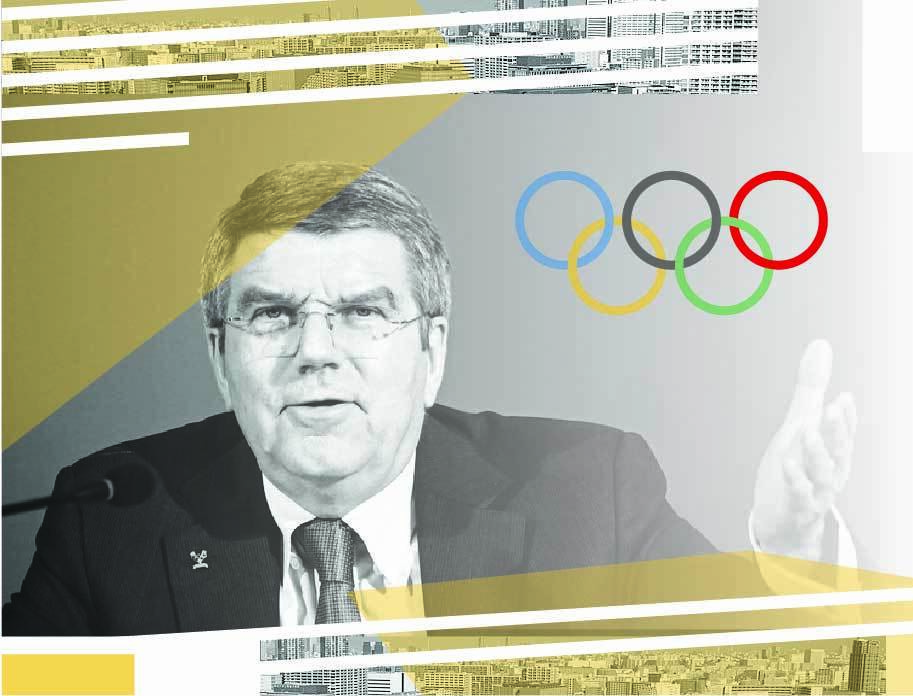
Prof Cheryl Cooky
Professor of American Studies and Women’s, Gender, and Sexuality Studies at Purdue University. She is the co-author of No Slam Dunk: Gender, Sport, and the Unevenness of Social Change and currently serves as the Editor of the Sociology of Sport Journal.
Twitter: @ProfCooky

Section 2: Media Coverage & Representation
- Twitter conversations on Indian female athletes in Tokyo
- ”Unity in Diversity” – The varying media representations of female Olympic athletes
- The Olympic Channel: insights on its distinctive role in Tokyo 2020
- How do we truly interpret the Tokyo Olympic ratings?
- Between sexualization and de-sexualization: the representation of female athletes in Tokyo 2020
- Reshaping the Olympics media coverage through innovation
- An Olympic utopia: separating politics and sport. Primary notes after analyzing the opening ceremony media coverage of mainstream Spanish sport newspapers
- What place is this? Tokyo’s made-for-television Olympics
- The paradox of the parade of nations: A South Korean network’s coverage of the opening ceremony at the 2020 Tokyo Olympics
- Tokyo 2021: the TV Olympics
- Why we need to see the “ugly” in women’s sports
- Ghana: Poor local organizing, and absence of football team dampens interest
- Megan Rapinoe: The scary Bear for many Americans?
- ‘A Games like no other’: The demise of FTA live Olympic sport?
- Temporality of emotionalizing athletes
- Fandom and digital media during the Tokyo 2020 Olympic Games: A Brazilian perspective using @TimeBrasil Twitter data
- Media wins medal for coverage of athletes as people, instead of entertainers
- Media frames and the ‘humanity’ of athletes
- Reporting at a distance. Stricter working conditions and demands on sports journalists during the Olympics
- New Olympic sports: the mediatization of action sports through the Olympic Games 2020 Tokyo
- Simone Biles, journalistic authority, and the ideology of sports news
- Representations of gender in the live broadcast of the Tokyo Olympics
- Americans on ideological left more engaged in Summer Olympics
- Nigeria: Olympic Games a mystery for rural dwellers in Lagos
- National hierarchy in Israeli Olympic discourses
- Equestrian sports in media through hundred Olympic years. A roundtrip from focus to shade and back again?
- Reshaping the superhuman to the super ordinary: The Tokyo Paralympics in Australian broadcasting media
- Is the Paralympic Games a second-class event?
- The fleeting nature of an Olympic meme: Virality and IOC TV rights
- Tokyo 2020: A look through the screen of Brazilian television
- Is the Paralympic Games a second-class event?
- How digital content creators are shaping meanings about world class para-athletes
- How digital content creators are shaping meanings about world class para-athletes
- The male and female sports journalists divide on the Twittersphere during Tokyo 2020
- Super heroes among us: A brief discussion of using the superhero genre to promote Paralympic Games and athletes
- “Everything seemed very complicated”: Journalist experiences of covering the Tokyo 2020 Paralympic Games
- Representing high performance: Brazilian sports journalists and mass communication professionals discuss their philosophies on producing progressive Paralympic coverage
- Representations of gender in media coverage of the Tokyo 2020 Paralympic Games
In February 2021, the International Olympic Committee (IOC) released a statement on gender equality in the Olympic movement, indicating the 2020 Tokyo Games as the “first gender-equal Olympic Games.” According to the statement, nearly 49% of Olympic athletes scheduled to participate at the Games would be female. In July 2021 in advance of the Games, media narratives drew on the IOC statement in shaping narratives of progress, albeit in nuanced ways. While many media narratives championed Tokyo 2020 as the “gender-equal” games, these narratives of progress were often accompanied by narratives of failure. Issues related to the lack of accommodations for breastfeeding athletes, child care, uniforms and the sexualization of sportswomen complicated the celebratory narratives of progress raising questions regarding the IOC’s claims. Absent from the IOC’s statement and less visible in media narratives of the gender equal games, was the “record number of openly LGBTQ athletes” competing at the 2020 Tokyo Games, triple the number of openly out LGBTQ athletes who participated in 2016. Also marginalized in narratives of progress was the “first out trans Olympian” gender non-binary athlete, Canadian Gold medal winner in soccer, Quinn.
This essay is an extension of a larger project (forthcoming book with Peter Lang Publishing, co-authored with Dunja Antunovic), where we examine how feminism itself becomes integrated in sports media narratives. We argue feminist concepts of equality, intersectionality, empowerment, sexism, among others inform the ways in which sports news media tell stories about women’s sports. In this preliminary analysis of the 2020 Tokyo Games, similar patterns in media narratives are observed. This essay examines the ways in which particular feminisms become visible in networked sport media and what this visibility might mean politically and economically for women’s sports.
Various media outlets discussed the “gender equal Olympics” within the context of ongoing examples of sexism. Vogue called for a “complete overhaul” as a result of the Games being sexist. According to the article, this was evidenced in US track and field’s ban of Sha’Carri Richardson after she tested positive for marijuana, FINA’s ban on swim caps designed for textured hair (more likely the hair type of Black sportswomen), as well as the various controversies regarding uniforms. Paralympian Olivia Breen was told by an official her shorts were too short. The Norwegian volleyball team, were fined because their shorts were too long. The Vogue article asked: What purpose do the Olympic Games serve when their rules seem so profoundly stacked against female athletes and athletes of color?”
Similarly, New York Times article explained the Olympics “rely on, but don’t support Black Girl Magic”. Noting the unfair scoring of Simone Biles’ impressive skills and routines, Naomi Osaka’s prioritization of mental health and her refusal to comply with expectations to attend press conferences, and Gwen Berry’s activism and subsequent backlash to conclude, “the structure that wraps around and organizes sports, particularly the Olympic movement, fails in supporting women — distinctly so for Black women.” An article in The Guardian blamed the differential treatment of white and Black athletes for Richardson’s exclusion from the Games while USA fencer, Alen Hadzic, who had been accused of “sexual misconduct” by three teammates had been allowed to compete. A CBC.com article described the IOC’s testosterone policy as sending, “disturbing messages to female athletes, especially those who are Black.” Two Namibian 400m runners, Christine Mboma and Beatrice Masilingi were both barred from competition in Tokyo after test indicated they have too high testosterone. South African runner Caster Semenya was also barred from her main event, the 800m, along with Burundi’s Francine Niyonsaba and Kenya’s Margaret Wambui (notably, all three athletes competed and medaled in the 2016 Rio Olympics). The CBC.com article argues the testosterone regulation, “created a toxic space where sexism and racism overlap,” noting how the rule disproportionately affects women of color from the global south.” Additionally, a bitchmedia headline read: “Black women athletes are not your performance mules,” a CNN.com article explained how “misogynoir is oppressing Black women athletes,” and an ACLU news and commentary piece explored how the IOC is “failing black women.”
Narratives of failure emerge in networked sport media in part due to athlete activism, and in particular women athletes speaking out and challenging the sexism and racism in the Games. US track and field athlete, Allyson Felix launched “The Power of She” child care grants program, donating $200,000 to support athletes’ child care needs. US gymnast, Simone Biles explained how her return to the Olympics is to give voice to sexual assault survivors. Biles was the only known survivor of Larry Nassar’s abuse to participate in the Games. Synchronized swimmer Ona Carbonell from Spain posted on social media her inability to bring her infant to the Games, who she is currently breast-feeding due to the Olympics’ COVID-19 restrictions. Both the Norwegian beach volleyball team and the German gymnastics team challenged the sexualization of their sports in selecting uniforms that went against the requirements dictated by sports governing bodies. Male fencers on the US team wore pink face masks to show their support for sexual assault victims and to protest the decision to allow teammate Alen Hazdic, who had been accused by several teammates of assault, to participate in the Games. This athlete activism, and the ways in which feminisms inform narratives in networked sport media, bring visibility to issues faced not only by Olympic athletes but issues that impact women’s lives: child care, sexualization and objectification, sexual assault among others.

